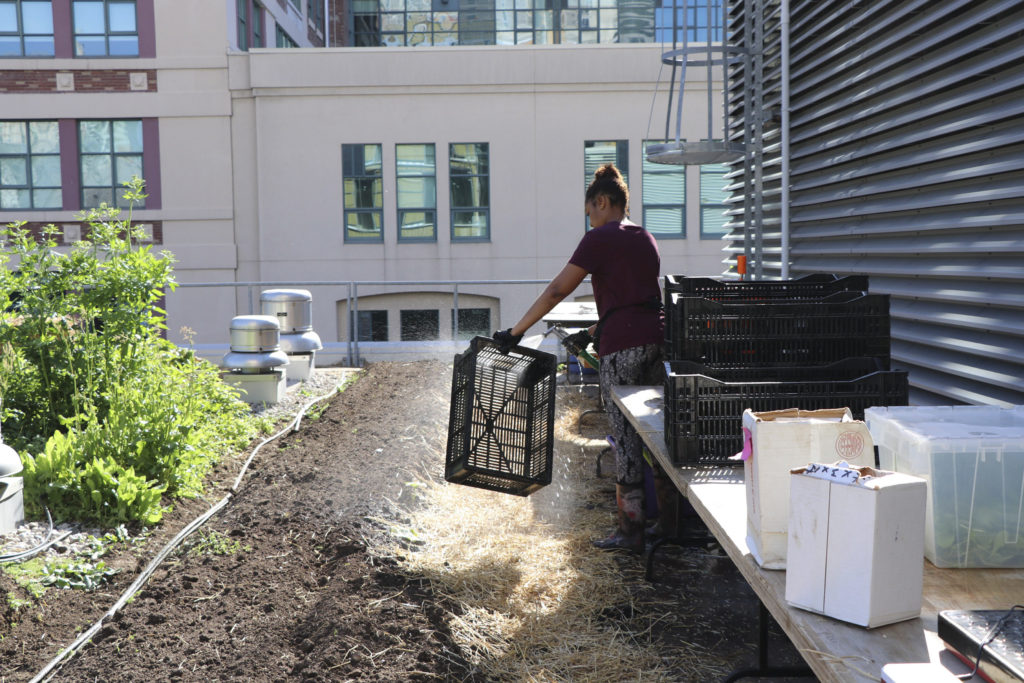
Project INSIGHTS REPORT
Governing sustainable municipalities
Executive Summary
Canadian municipalities are on the front-lines of many of the acute economic, social and environmental challenges facing Canada and play a pivotal role in this nation’s progress towards sustainable development goals.
The Governing Sustainable Municipalities project assessed the current state of municipal preparedness in Saskatchewan for economic, social, and environmental sustainability. The project also engaged stakeholders to identify barriers and opportunities for Saskatchewan municipalities to enhance sustainability in their communities.
Based on the index, on average, cities in Saskatchewan were furthest along in their sustainability policies and programs, followed by northern municipalities, small urban municipalities, and finally rural municipalities. Across indicators, Saskatchewan municipalities had made more progress on economic and social sustainability than environmental sustainability.
The Municipalities Sustainability Index was a useful tool to engage municipal stakeholders across Saskatchewan in identifying shared challenges, but also to highlight successes that merit wider adoption. To further this work, the project team encouraged regional municipal associations to deepen their convening role to host sector-wide conversations about sustainability and the sharing of best practices.
Key Insight #1
Cities are further along with their economic, social, and environmental sustainability plans and initiatives than are northern, small urban, and rural municipalities.
Key Insight #2
Across different types of municipalities in Saskatchewan, few had well developed plans related to sustainable tourism, affordable housing, and access to modern energy.
Key Insight #3
Economic, social, and environmental sustainability goals are not universally accepted or valued.
 The Issue
The Issue
The United Nations sustainable development goals (SDGs) include economic, social, and environmental sustainability targets.
Municipal governments are important partners in Canada’s broader success or failure to meet its SDG commitments. Municipalities are involved in economic development and stewardship of water, road, and waste infrastructure, and they work in collaboration with other governments to solve issues related to health and social development. Saskatchewan has 766 municipalities, among which 445 are classified as urban, 296 are rural, and 25 are northern.
 What We’re Investigating
What We’re Investigating
This project aimed to better understand the current state of municipal efforts on economic, social, and environmental sustainability, identify obstacles and potential avenues for advancement, and to cultivate communities of practice with a focus on municipal sustainability.
The project was guided by these research questions:
- What is the current state of municipal preparedness for sustainability?
- What are the key facilitators of and barriers to sustainability in the municipal sector?
- How can municipal sustainability initiatives engage underserved groups, particularly Indigenous peoples, racialized peoples, members of the LGBTQ2S+ community, and people with disabilities?
- What strategies can help us to move forward with municipal sustainability in its broadest context?
To answer these questions, the project:
- Performed a literature review on the factors influencing the conception, development, administration and communication of municipality-level sustainability projects, policies and plans.
- Created a Saskatchewan Municipalities Sustainability Index to measure existing efforts. The index was made up of 12 indicators in total: four economic, four social and four environmental. Each indicator was scored as either developed, emergent or absent. Project partners based the assessment on publicly available documents, policies, programs, and plans. The results of the assessment were shared with the municipalities for feedback.
- Development and sharing of issue briefs with municipal stakeholders on the following topics:
- Discussions with municipal representatives, including two roundtables, six virtual focus groups and at the Skills for Sustainability Forum, held in Saskatoon to discuss the skills training needed to support Saskatchewan municipal governments in leading sustainable communities.
 What We’re Learning
What We’re Learning
In total, 36 Saskatchewan municipalities were assessed by the Saskatchewan Municipalities Sustainability Index using 934 documents. This included six cities, 15 smaller urban centers, 10 rural municipalities and five northern municipalities.
City municipalities achieved the highest scores for sustainability. Among 36 municipalities reviewed, cities had the highest average score (21.5 out of 24) for economic, social, and environmental sustainability with no city municipalities scored as absent in any of the 12 policy areas. The project team noted that cities were also more likely to have official community plans that allowed for alignment with economic, social, and environmental goals. Using the index scores, cities were followed by northern municipalities (16.8), small urban municipalities (15.7), and finally rural municipalities (10.6). Municipalities were more likely to have developed plans related to reduced waste generation, partnerships, integrated water management and terrestrial freshwater ecosystems. Across indicators, fewer municipalities had developed plans related to sustainable tourism, affordable housing, and access to modern energy.
Barriers can become facilitators. Stakeholders from Saskatchewan municipalities shared similar barriers to exploring and implementing sustainability initiatives, including lack of revenue options, restrictive funding and legislation, limited planning, lack of engagement and partnership, and too little transparency. However, many stakeholders also felt barriers could become opportunities in the right circumstances, for example while restrictive funding is a barrier, funding opportunities from other levels of government can be a facilitator of sustainability initiatives and plans.
Administrative skills for sustainability are in-demand.
Knowledge and skills capacity were identified as a major factor influencing the success or failure of sustainable development for many participants. Many municipalities noted a challenge in finding and retaining experienced administrators and those in place were so tied up with their day-to-day duties that they did not have the free time to research suitable upskilling courses or to be away from the office for training. This skills gap extends to municipal officials, including councilors, whose lack of sustainability knowledge and skills can translate to a lack of political will for sustainability initiatives generally. Several stakeholders shared failed attempts to provide councilors with training opportunities.
Not everyone supports sustainability as a goal. Sustainable development and the UN principles were not uniformly accepted by people or political leaders in Saskatchewan. The roundtables hosted by the project team included groups aggressively opposed to the concept of sustainability, the United Nations and the SDGs. Stakeholders in discussions with the project team also shared their experience with municipal councilors skeptical of sustainability principles and initiatives. These opposing views pose a significant barrier to municipal sustainability planning and implementation.
 Why It Matters
Why It Matters
Canadian municipalities play a pivotal role in Canada’s progress towards its commitments to the sustainable development goals.
Municipalities are on the front-lines of many of the acute economic, social, and environmental challenges facing Canada today including aging infrastructure, lack of affordable housing, increasingly frequent climate related disasters like forest fires and flooding, and the accessibility of broadband internet access.
This project highlights the benefits of looking across municipalities to understand the progress towards economic, social, and environmental sustainability targets within a larger region, and cultivating connections across municipalities to support awareness and progress. The Municipalities Sustainability Index was a useful tool to engage municipal stakeholders across Saskatchewan in identifying shared challenges, but also to highlight successes that merit wider adoption.
This project holds lessons for municipal, provincial, and federal decision makers, as well as municipal associations on the local challenges faced by different types of municipalities in meeting sustainable development goals. The project team encouraged actors like Saskatchewan Urban Municipalities Association, Saskatchewan Association of Rural Municipalities, and New North to deepen their role bringing together Saskatchewan municipalities in sector-wide conversations about sustainability and to share success stories. However, efforts to convene municipalities across Saskatchewan are complemented by national efforts from The Federation of Canadian Municipalities, which provides municipalities across Canada with issue expertise and advocacy, funding opportunities, and events to share learnings across economic, social, and environmental issues.
 What’s Next
What’s Next
The project team continues to share their learnings generated from this project, including a Saskatchewan Municipal Stakeholder Database and four issue briefs. All the resources are available on the project webpage at the University of Saskatchewan.
More from FSC
Working when sick: How workplace regulations and culture will impact the post-pandemic recovery
Long-term labour market scarring on youth from economic shocks





